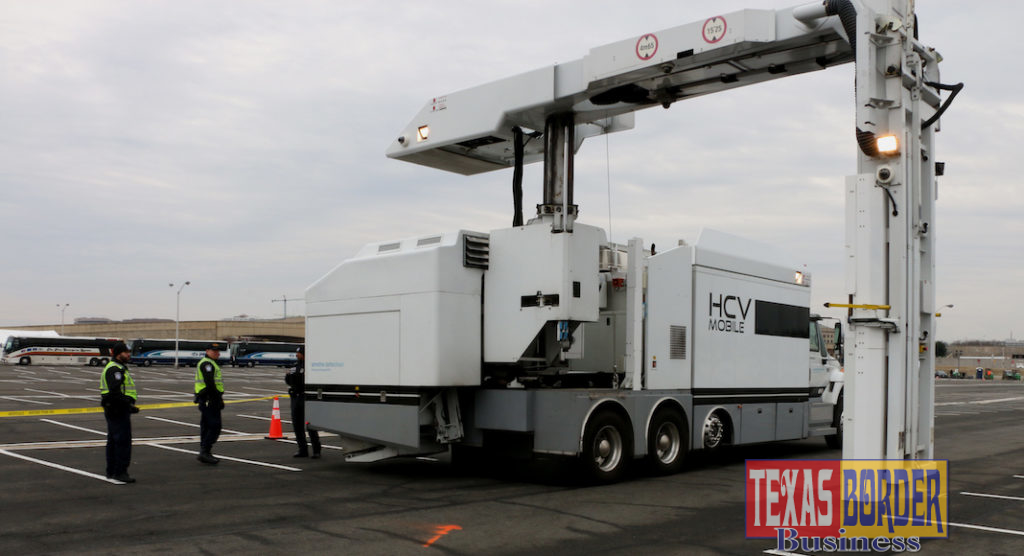For non-intrusive imaging equipment, more canine teams, and 600 new U.S. Customs and Border Protection (CBP) officers

Texas Border Business
WASHINGTON— Congressman Henry Cuellar (TX-28) helped secure funding for innovative non-intrusive imaging equipment, additional canine teams, and 600 new U.S. Customs and Border Protection (CBP) officers in the fiscal year 2019 appropriations package. He also included language that will encourage CBP to hire an additional 600 officers, whose salaries will be paid for with custom fees, with the potential of yielding 1,200 new officers. Deploying these and additional resources at our ports of entry (POEs)will help CBP combat the entry of illicit goods, narcotics, and human smuggling into the country. It will also increase security and ensure the smoother, faster flow of legitimate trade and travel.
CBP’s dual mission of protecting our borders and facilitating legitimate trade and travel is not only a critical component of national security but also of the nation’s economic prosperity. In FY2017, CBP processed $2.39 trillion in imports, equating to 33.2 million entries and more than 28.5 million imported cargo containers at 328 U.S. POEs. For years, Congressman Cuellar has made it a top priority to ensure that CBP has the capability and capacity to improve the efficiency of legitimate trade and travel at our nation’s POEs while maintaining the highest standards of security.
Congressman Cuellar said, “My district is home the largest inland port in the United States, conducting over 60 percent of all U.S.-Mexico trade. Increasing the number of trade enforcement personnel and improving technology will help streamline international commerce, eliminate costly bottlenecks and increase trade as well as security for cities along the border, greatly benefitting the local and national economy.”
“CBP processes over one million passengers and pedestrians who make their way across the United States’ borders to visit our cities each day,” Cuellar continued. “These people spend their hard-earned money eating at our restaurants and purchasing goods in our stores, which benefits the local border communities in my district. It is my top priority to facilitate this increased tourism and trade while also protecting our borders. This starts with making certain that we have a sufficient number of CBP personnel and new technologies at our ports of entry.”
Increasing CBP Officers at Ports of Entry
To increase border security at the POEs, Congressman Cuellar included funding for 600 new CBP officers in the fiscal year 2019 appropriations package. He also included language that will encourage CBP to hire an additional 600 officers, whose salaries will be paid for with customs fees, with the potential of yielding 1,200 new officers. Increasing the number of CBP personnel at POEs will ensure legitimate trade and travel while working to increase the nation’s security.
In the fiscal year 2019 Appropriations Conference Report, he helped secure language and funding for:
- $58.7 million to hire 600 new CBP officers for ports of entry and language encouraging CBP to hire an additional 600 officers whose salaries will be paid for with custom fees;
- $20 million for CBP officer retention;
- $564 million for innovative non-intrusive imaging equipment;
- $6 million for outbound enforcement equipment;
- $45 million for inspection equipment at international mail and express consignment facilities;
- $10 million for automated commercial environment enhancements to include post core development and collections;
- $18.5 for revenue modernization;
- $14.7 million for Office of Field Operations facilities;
- $191 million for infrastructure improvements at ports of entry;
- $15 million for port of entry technology for opioid detection;
- $27 million for law enforcement Canines;
- $2 million for canine team personnel for opioid detection;
- $1.6 million for support staff for opioid detection;
- $5.7 million for laboratory personnel for opioid detection;
- $2.5 million for equipment for field labs for opioid detection;
- $20 million for the expansion of the National Targeting Center;
- $5 million for counter-network operations at the National Targeting Center;
- $2 million for the Office of Trade to enhance targeting activities; and
- $113 million for additional air and marine assets, to include three multi-enforcement aircraft.
Increasing Technology Along the Border
This bill includes $564 million for CBP to procure cutting-edge NII technology that will enable the agency to expedite the screening of a larger portion of the $11 billion worth of international trade that crosses our borders every day. CBP currently has 315 large-scale NII systems deployed at U.S. POEs to examine cargo conveyances such as sea containers, commercial trucks, and rail cars, as well as privately owned vehicles for the presence of contraband without physically opening or unloading them. This funding will go towards initiating a five-year plan to screen 100 percent of all vehicles that cross the southwest border. Increased technology at major ports of entry will increase efficiency significantly by increasing cargo capacity and reducing wait times. These improvements will reduce millions of dollars in lost economic output and create jobs at the border and across the United States.
Increasing Canine Teams & Personnel
Congressman Cuellar helped secure $29 million for law enforcement canine teams to assist in screening at POEs. The primary goal of the CBP Canine Program is terrorist detection and apprehension. The working CBP canine team has become the best tool available to detect and apprehend persons attempting entry to organize, incite, and carry out acts of terrorism. The Canine Program’s secondary goal is detection and seizure of controlled substances and other contraband, often used to finance terrorist and/or criminal drug trafficking organizations. The combination of NII equipment, canine teams, and well-trained, highly skilled officers will allow CBP to help end the exploitation of the nation’s southwest land POEs while increasing trade and travel.
Securing Pay Raises for Federal Employees
As a member of the Conference Committee on Homeland Security Appropriations, the Congressman fought for increased pay to federal workers. He helped secure language as a part of the fiscal year 2019 Homeland Security spending bill that gives an average 1.9 percent pay raise to government workers. Through
















